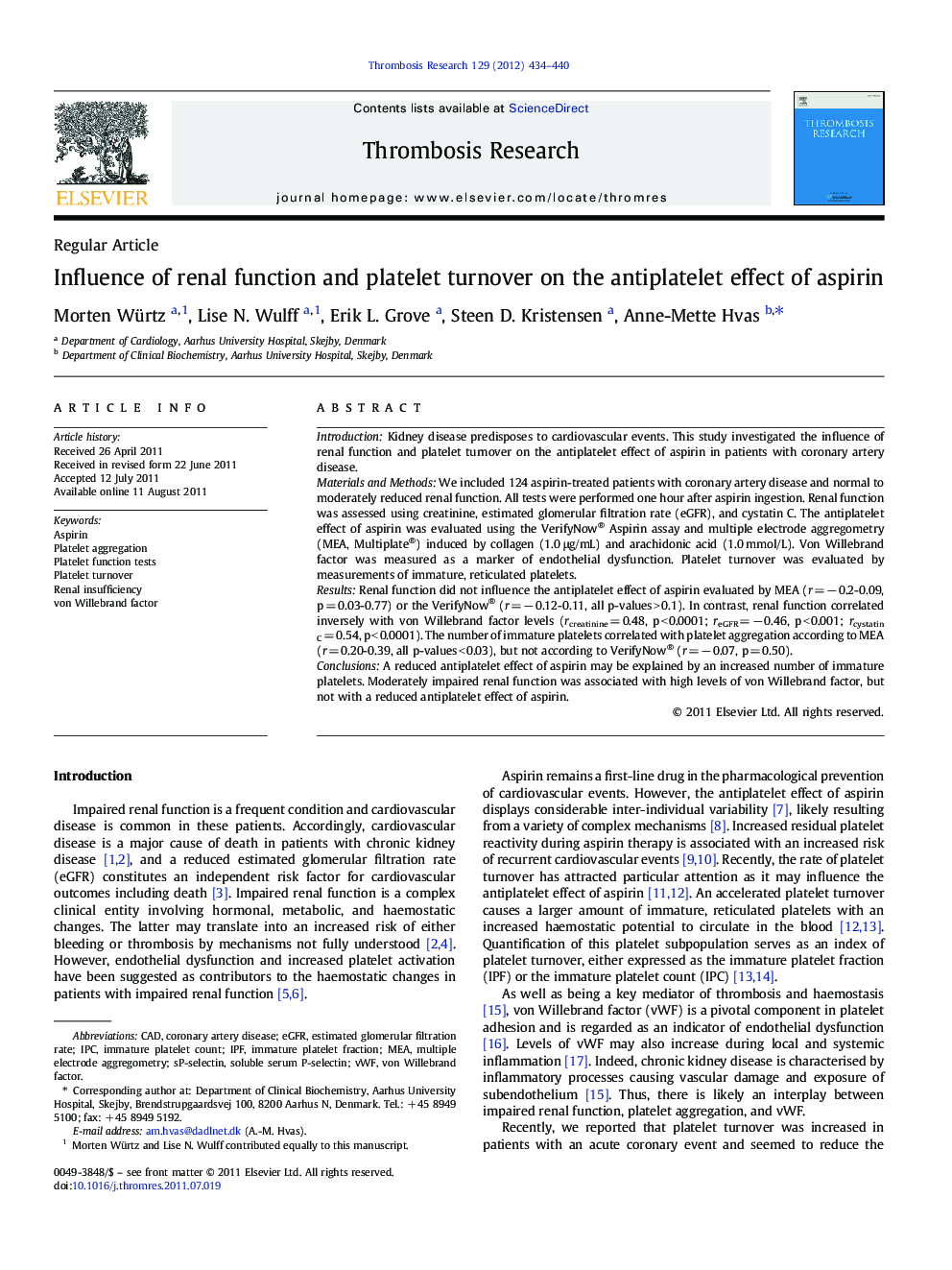| Article ID | Journal | Published Year | Pages | File Type |
|---|---|---|---|---|
| 6003153 | Thrombosis Research | 2012 | 7 Pages |
IntroductionKidney disease predisposes to cardiovascular events. This study investigated the influence of renal function and platelet turnover on the antiplatelet effect of aspirin in patients with coronary artery disease.Materials and MethodsWe included 124 aspirin-treated patients with coronary artery disease and normal to moderately reduced renal function. All tests were performed one hour after aspirin ingestion. Renal function was assessed using creatinine, estimated glomerular filtration rate (eGFR), and cystatin C. The antiplatelet effect of aspirin was evaluated using the VerifyNow® Aspirin assay and multiple electrode aggregometry (MEA, Multiplate®) induced by collagen (1.0 μg/mL) and arachidonic acid (1.0 mmol/L). Von Willebrand factor was measured as a marker of endothelial dysfunction. Platelet turnover was evaluated by measurements of immature, reticulated platelets.ResultsRenal function did not influence the antiplatelet effect of aspirin evaluated by MEA (r = â 0.2-0.09, p = 0.03-0.77) or the VerifyNow® (r = â 0.12-0.11, all p-values > 0.1). In contrast, renal function correlated inversely with von Willebrand factor levels (rcreatinine = 0.48, p < 0.0001; reGFR = â 0.46, p < 0.001; rcystatin C = 0.54, p < 0.0001). The number of immature platelets correlated with platelet aggregation according to MEA (r = 0.20-0.39, all p-values < 0.03), but not according to VerifyNow® (r = â 0.07, p = 0.50).ConclusionsA reduced antiplatelet effect of aspirin may be explained by an increased number of immature platelets. Moderately impaired renal function was associated with high levels of von Willebrand factor, but not with a reduced antiplatelet effect of aspirin.
